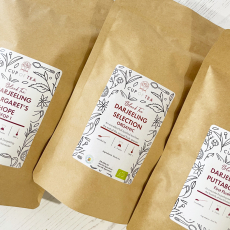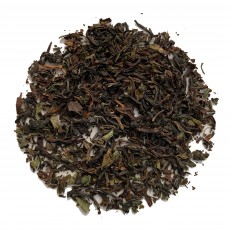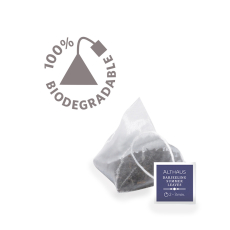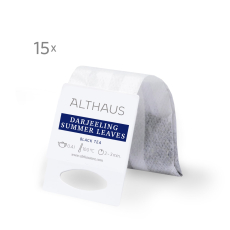First Flush FTGFOP 1
Black Tea
First Flush
Black Tea
First Flush Organic
Black Tea
FTGFOP1 Second Flush Organic
Black Tea
Second Flush
Black Tea
Black Tea
Black Tea
Black Tea
Black Tea
Darjeeling Summer Leaves
Black Teabags
Darjeeling Summer Leaves
Black Teabags
The Unique Qualities of Darjeeling Tea
Darjeeling teas are some the most sought after teas in the world and are often called the Champagne of tea. In the nineteenth century, the reputation of Darjeeling tea in England became firmly established as a ‘fancy tea’.
Set against the spectacular backdrop of the Himalayas, Darjeeling is one of the most famous tea-growing regions in India.
Each year, the arrival of spring heralds the prized first flush: the first new shoots of the season, which produce some of the most flowery, fragrant and delicate tasting teas.
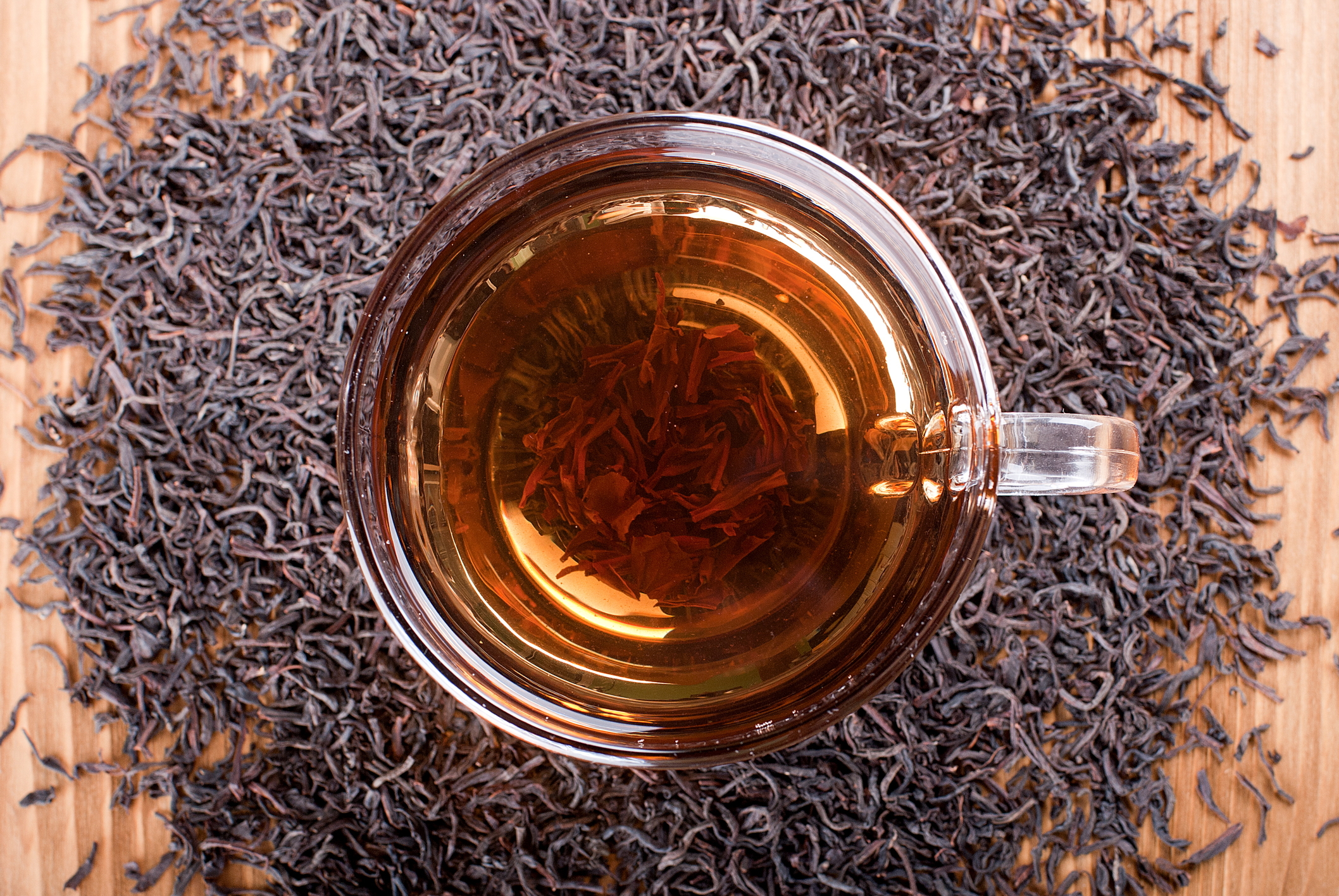
Harvesting and Production
Darjeeling is a mountainous area located west of the Assam region in the northern state of West Bengal. It is truly the ‘Kingdom in the Sky’, blessed with a lofty Himalayan environment and outstanding terroir that produces tea unlike any other on the planet.
Here, variations in climate bring long cold winters, cool and breezy summers months, and late summer monsoon rains. The geography and climate provide a well-balanced set of growing conditions for superb high quality teas.
The Darjeeling is comprised of eighty-seven tea gardens spread over seven valleys of what is collectively known as ‘the hill’. The tea estates are set up in higher altitudes between 800 - 2200m above sea level. As the elevation climbs, the cool, thin air slows leaf growth, yielding smaller tea leaves. This slower maturation concentrates the flavour in the leaves, giving these teas a well-defined, precise taste profile.
Due to the high elevation and steep grade, tea gardens here are not as large as those planted at lower elevations. This results in smaller annual harvests of this exquisite tea. Accordingly, the price of fine Darjeeling tea is high, as worldwide demand has never reduced for pure, unblended Darjeeling tea. The higher a garden is placed the more delicate and aromatic and therefore more expensive its teas will be.
Darjeeling produces three annual crops:
March - May - The very sought after First Flush teas are picked, produced from the youngest, most succulent shoots of the tea growing season.
June - July - The deeply aromatic Second Flush teas are picked. The shrubs havehad more exposure to sunlight, thier flavour is more intense and full-bodied and their colour a warm golden-amber.
October - November - The more subtle autumnal Darjeeling teas are picked.
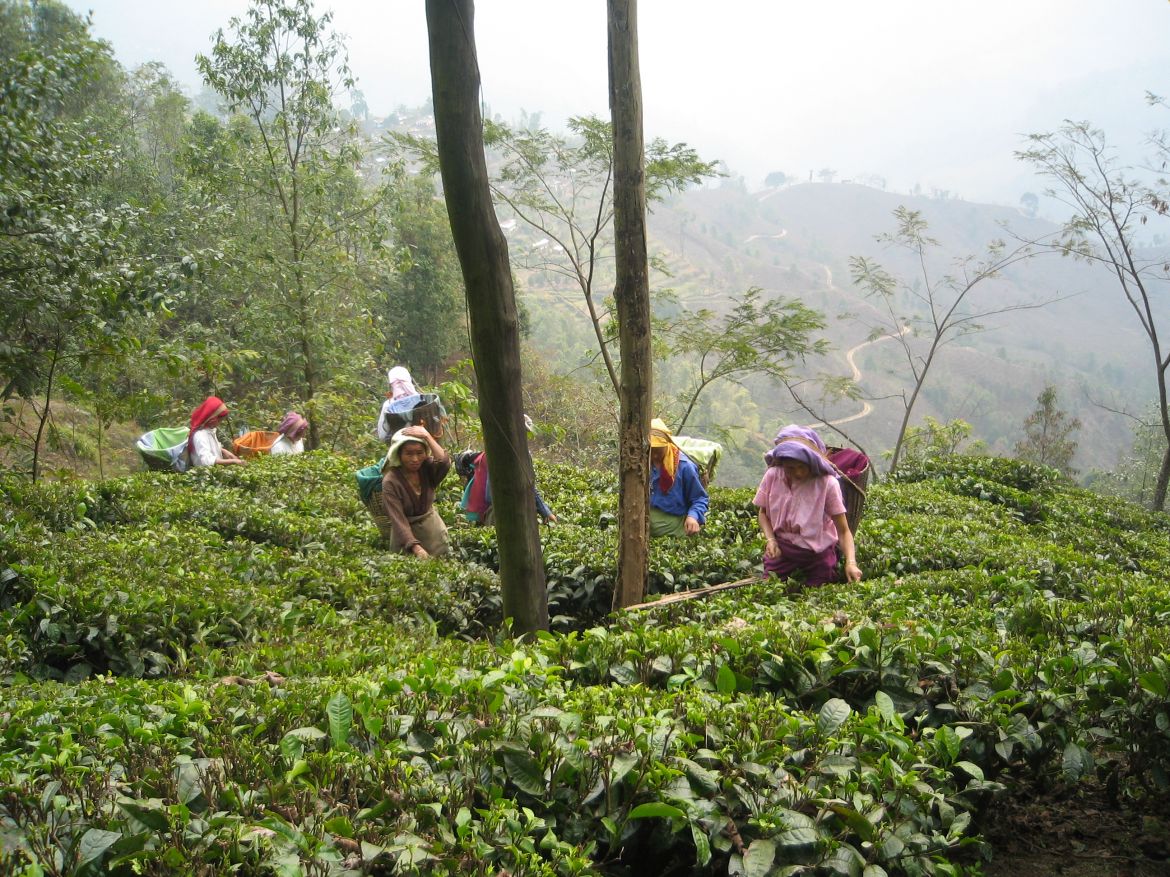
The first step in the production of Darjeeling tea is the plucking of the tea leaves. Once the worker’s baskets are filled with the tiny buds, they are brought back to the factory where the 5-step production process begins. These steps include: Withering, rolling, fermentation, drying and sorting & packing.
- Withering - air is blown over the leaves to dry them out over a period of 14-16 hours
- Rolling - leaves are taken to mechnaical rollers which twist and remove leftover moisture. This process is carefully moitored to ensure the leaves dont overheat or break
- Fermentation - kept on trays in a cool, humid environment, the leaves are left to ferment. This process can take up to 4 hours depending on the temperature. It is essential this process is carried out correctly as any mistakes can affect the quality and taste of the tea
- Drying - the leaves are taken to a dryer where they are sugjected to 20-30 minutes of 115°C-120°C temperatures until they are free of moisture and ready to be sorted
- Sorting and Packing - tea leaves are mechanically graded by size and finally packed
History of Darjeeling Tea
Considered the founding father of Darjeeling tea, Dr. Campbell is where the history of the tea begins. In 1839, he was transferred to Darjeeling and, by 1841, had planted Camellia Sinesis seeds (from which Darjeeling tea leaves originate from) – The tea grew so successful in his garden that the government decided to grant the first tea nurseries in the area.
The tea rapidly gained in popularity and by 1866 there were 39 tea plantations producing 133,000lbs of tea. This number only tripled within the next ten years.
The British first entered the Darjeeling area in 1820 but before that strong political forces surrounding the land, such as Nepal, Sikkim and Bhutan, all had control at different points in history. By 1835 the Brits had taken control for themselves. When they left in 1947, the tea gardens were transferred to the possession of Indian entrepreneurs.
Today Darjeeling tea is known as the “Champagne of teas” and is well known for its unique flavour and high quality.
How to Brew Darjeeling Tea
Grown in only one region of the world, Darjeeling tea is something special and not to be missed! Whether you want to use the loose leaves or try a tea bag infusion, the standard process is the same.
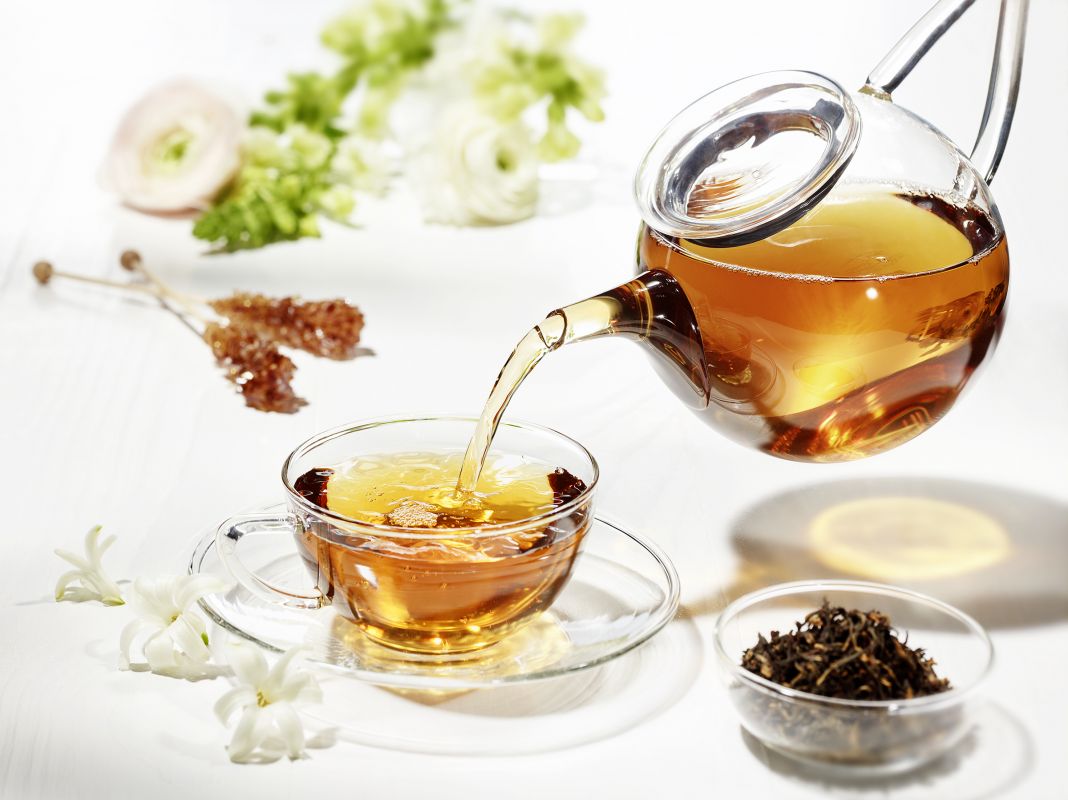
Brewing Darjeeling Tea:
- Boil some fresh cold water
- Place the tea leaves in a tea strainer
- Pour the hot water over the leaves
- Steep the tea for the appropriate amount of time
- Strain the tea
- Sweeten the tea to taste (Darjeeling tea should be taken without milk)
- Sit back and enjoy!
Brewing Table
 Ranging from 1 levelled teaspoon to 1 slightly heaped teaspoon
Ranging from 1 levelled teaspoon to 1 slightly heaped teaspoon
 2-4 minutes
2-4 minutes
 A range of colours including: Pale Yellow, Golden Yellow, Red Golden & Light Brown
A range of colours including: Pale Yellow, Golden Yellow, Red Golden & Light Brown
NOTE: Please make sure to read the individual brewing instructions on each package of tea.
The Indian region of Darjeeling has some of the finest tea estates in the world due to its altitude, climate and craftsmanship.
The tea is of a top class and full of flavour and aroma.
Our Darjeeling Tea favourites are below:
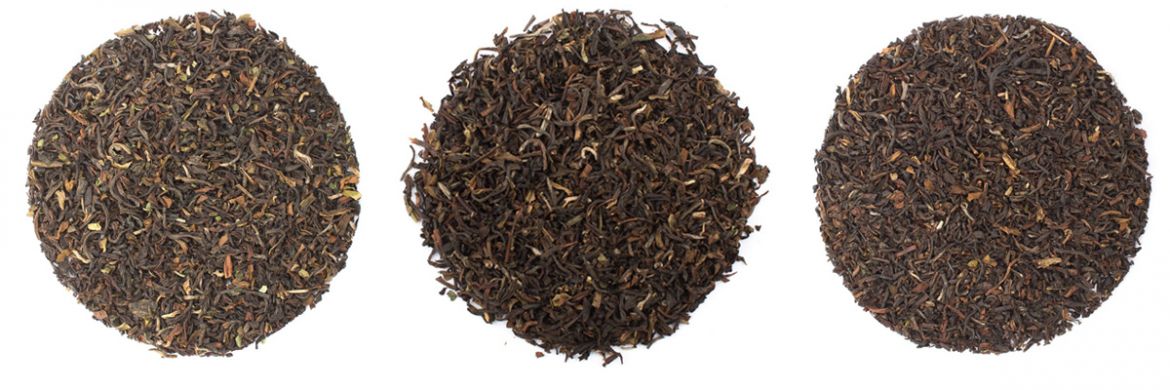
- Ronnefeldt Darjeeling Badamtam First Flush Organic - This particular Darjeeling is a premium First Flush with a memorable fresh, flowery taste, and a delicacy that only a Spring harvest can bring.
- Ronnefeldt Darjeeling Margaret’s Hope Second Flush - A lovely soft Darjeeling with a strong body and fruity, aromatic muscatel notes. It becomes a firm favourite of everyone who tries it.
- Ronnefeldt Summer Gold Organic - An elegant flowery black tea with a delicious muscatel flavour. This is a summer picked tea for connoisseurs who like it a little more full-bodied.





 EARN POINTS WITH OUR LOYALTY SCHEME
EARN POINTS WITH OUR LOYALTY SCHEME
